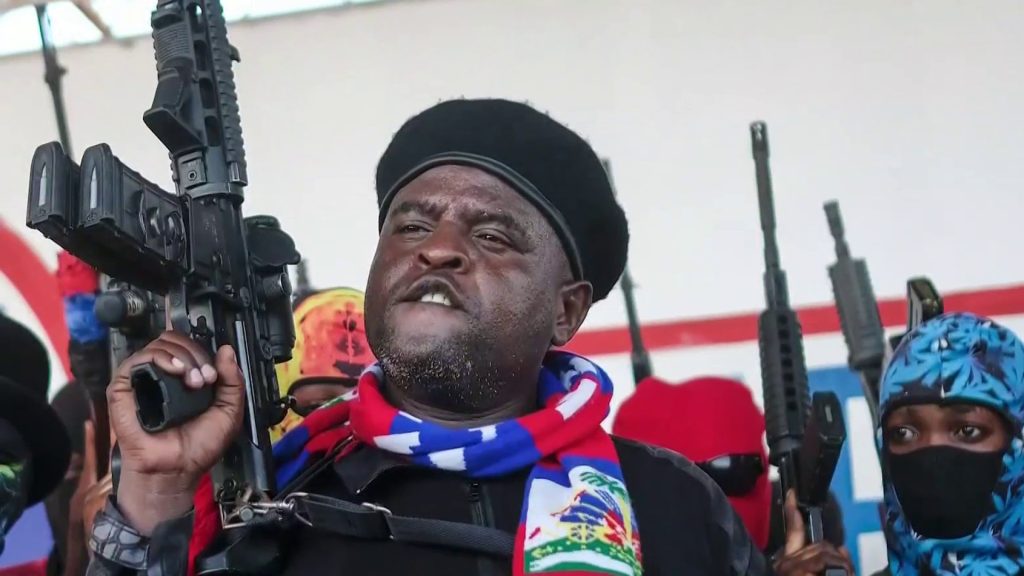The famed gang leader synonymous with Haiti’s chaos, Jimmy Chérizier, known as “Barbecue,” has expressed his openness to a ceasefire under specific terms: inclusion of his armed gang consortium in international discussions regarding Haiti’s future.
Chérizier spoke during an interview with Stuart Ramsay, Sky News’ chief correspondent, where he cautioned against foreign peacekeeping intervention, vowing armed resistance.
In the interview that aired on Friday, March 29, the gang leader emphasised that a recent pause in violence was tactical, rather than indicative of peace.
“There is nothing calm, but when you’re fighting you have to know when to advance and when to retreat.
“I think every day that passes we are coming up with a new strategy so we can advance, but there’s nothing calm. In the days that are coming things will get worse than they are now,” he said.
As the leader of both the G9 gang coalition and the Viv Ansanm (“Living Together”) revolutionary alliance, Chérizier asserted control over much of Port-au-Prince, where gang violence has surged following Prime Minister Ariel Henry’s resignation announcement in the face of prolonged unrest.
The United Nations reported staggering casualties from gang violence, with 1,500 deaths recorded this year and 4,500 last year. Evacuation efforts for U.S. citizens from Haiti have been underway since March 17, with hundreds already airlifted.
While CARICOM and the United States have pledged support for a transitional government, gang dominance persists on the streets. Chérizier expressed skepticism toward this initiative but hinted at potential engagement in a peace agreement if it respects Haiti’s sovereignty.
Chérizier condemned the violence but advocated for dialogue, suggesting that weapons could be relinquished if the international community presented a collaborative, non-imposing approach.
The gang consortium which Chérizier leads, blames Haiti’s woes on corrupt politicians, dating back to the mismanagement of international aid post-2010 earthquake. Despite accusations of brutality, including involvement in a massacre in 2018, he’s seen by some as a revolutionary figure.
Accessing Chérizier for the interview was a herculean task, requiring navigation through a barricaded and tense environment controlled by his armed guards.
Chérizier warned against foreign military intervention, particularly from Kenya, stating that they would be treated as invaders.
“It’s evolving. If the Kenyan military or Kenyan police come, whatever, I will consider them as aggressors, we will consider them as invaders, and we do not have to collaborate with any invaders that have come to walk over our independence,” he said.
He added that Haiti will someday be free from violence and corruption, once corrupt politicians and oligarchs are no longer in power.
The situation remains risky as Haiti reels on the brink of further turmoil, with Chérizier’s stance emphasising the challenges facing efforts to restore stability and democracy in the country.

